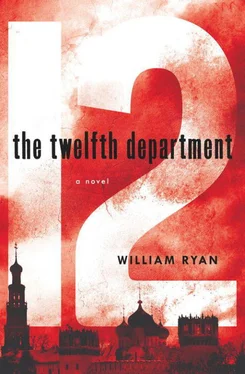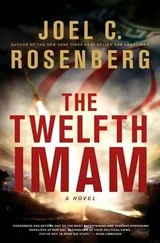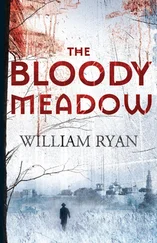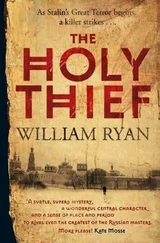“Do you play chess, Korolev?”
“I’ve played it, but not for many years. Maybe once or twice with Yuri.”
“That’s a shame—I think you’d be a good player. Solid, mostly, but capable of identifying an opportunity when it comes along. More importantly you know how to be brave when you need to be, to risk defeat in order to achieve victory.”
“If you say so, Comrade Colonel.”
But Korolev suspected that in a chess game like this defeat was permanent.
“You’re in a difficult situation, Korolev. Your former wife’s situation is also precarious. And, it seems to me, your son is in a difficult position as well.”
Korolev felt his hand grip the telephone so hard it seemed possible he would crush it, but he somehow managed to hold his tongue.
“I think I can intervene in your wife’s predicament—I’d like to take her off the board, if that were possible.”
Korolev didn’t know what the colonel was suggesting and didn’t think he could ask either.
“But with regard to your son we must accept it’s a strong possibility that they’ll find him before we do. And if they do find him first, Korolev, the question is—how will they use him?”
That wasn’t a question Korolev much wanted to consider, let alone answer. The colonel was silent again—no doubt thinking. Korolev wondered if the colonel had a son, and just what he’d be thinking if it was his child out there on the streets of Moscow being hunted by Chekists.
“Well, Korolev,” Rodinov said eventually. “Whatever happens, you must remember that your best chance of coming out of this in one piece is with me. You probably already know too much to be allowed to survive long if Zaitsev wins. Will you remember that?”
“I will, Comrade Colonel,” Korolev said.
“Good. And from now on you’ll report to me face-to-face. The telephone isn’t ideal for this kind of conversation. Five o’clock tomorrow—at the side entrance to the Lubyanka. In the meantime, carry on as you’ve done so far—it’s having an effect, it seems. I wish you luck, Korolev.”
The colonel hung up and for a moment Korolev sat listening to the hum of the telephone line in his ear and feeling more alone than he ever had.
Except that wasn’t entirely the case. There had been one other time. Nineteen sixteen—the summer—he’d been cut off during some pointless battle that had raged for the best part of a week. He’d spent two days in a shell hole between the lines, knowing if he stuck his head above the ground he’d be shot at by both sides. Just him, half a bottle of water, and four dead men. Or what was left of them. And German and Russian shells falling around him as each side tried to work out if the other was coming at them.
He sat there for a moment, remembering it—and coming to the conclusion that his current situation was worse. In 1916, his son hadn’t been in the shell hole with him.
Korolev didn’t go straight home, even though he was exhausted. He stood on the street outside Shtange’s apartment building and thought about where Yuri might be. He had a few ideas. He looked back at the two goons in the Emka. They were looking tired now as well—or perhaps just bored. Well, if he did manage to find Yuri, he’d be damned if these two runts were going to take him away. He’d a temporary assignment to the NKVD, signed by Nikolai Ezhov himself. That must make him a colleague to these two—perhaps even their superior. Anyway, he was coming to understand that there might be some unexpected advantages to this temporary assignment of his. He tipped his hat to the men, and received two blank stares in response. Not very comradely, all things considered.
Korolev pointed the car in the direction of Kuznetsky Most, which would be busy even at this time of the evening, just in case he might spot Yuri there. Nothing. Then he went west to Arbat, where Moscow’s youth liked to gather during the evening, but there was no sign of him there either. Finally he went to Kievsky Station, where the train from Peredelkino came in, parked the car and walked through the station, checking each of the platforms and waiting rooms before picking his way through the surrounding streets. Still nothing.
It was getting dark by the time he decided that if Yuri was in Moscow he’d likely have gone to ground completely. With a dull pain in his chest, he turned the car in the direction of home, although his eyes kept searching, hoping against hope for a sign of the boy. And then, by chance perhaps, or more likely because his subconscious had taken over the driving while he scanned his surroundings, he found himself looking at an enameled street sign. Vitsin Street.
Vitsin Street wasn’t on his direct route home. But still, here he was. And what was more, twenty meters farther along the street was the orphanage where the professor’s wife worked. He parked the car and stepped out. Sure enough, the Emka pulled in thirty meters farther back.
“Who is it?” a voice said from inside when he knocked on the heavy wooden door for the second time.
“Militia. Open up.”
“A moment.”
There was the sound of a heavy lock being opened and a bolt being pulled before the door creaked open a few inches and a pair of wary eyes appeared in the narrow gap.
“What do you want, Comrade?” a deep voice asked him.
“I need to talk to the director.”
“He’s having his dinner.”
Korolev had had a long day and a longer night. And he’d good reasons for the temper that had been simmering nicely all day.
“I don’t care if he’s dancing naked to the damned radio.” Korolev pushed hard at the door. “I need to see him right now.”
The door didn’t move. The wary eyes, it seemed, were attached to a hefty amount of muscle. They blinked once when he pushed but otherwise they maintained their steady gaze.
“Ask nicely and I’ll let you in. Otherwise it’s good night to you.”
Korolev could feel a headache coming on, but he did his best to swallow his irritation.
“Please open this damned door,” he said. “I would be very grateful.”
“That’s better.” The door swung open and Korolev was surprised to discover that, while the cautious eyes were indeed attached to a body that had more bulk than a prize-winning ox, he’d been talking to a woman. But that was probably just as well, he decided—because if she’d been a man he might have felt obliged to throw a punch, and there was every chance, to judge from the way the fabric stretched across those biceps, that this would have been a mistake.
“My name’s Korolev. From Petrovka.”
She examined his identity card before handing it back to him, glancing at his face for the briefest of moments. She made no comment on his black eye.
“We have to be careful. Not all the boys want to be in here—and some of them have friends on the outside. I’m Tambova—the boys call me Little Barrel.” She snuck another look at him, perhaps gauging his reaction, and shrugged.
“I prefer Little Barrel. Sit here and I’ll knock on the director’s door. Korolev, you said.”
“That’s me.”
“Don’t let anyone in while I’m away.”
She turned to climb up the staircase behind her, her movements surprisingly delicate.
There was a long wooden bench in the hallway where she probably wanted him to sit, but Korolev decided to take a walk along the corridor that led deeper into the building. At one stage the place had been a monastery, of course, and he found traces of its former identity—the outline of a three-fingered hand raised in blessing behind poorly applied whitewash, ancient wooden doors with crosses cut into the nails, and a stone-flagged floor that had been worn smooth by hundreds of years of monks’ feet. He followed his nose until he found himself in a chapel, now a dormitory. Ranks of bunk beds were pressed in on top of each other, with only the narrowest of spaces between them for movement. There were no children, however, only rolled-up mattresses resting on the wooden bases of the beds.
Читать дальше












